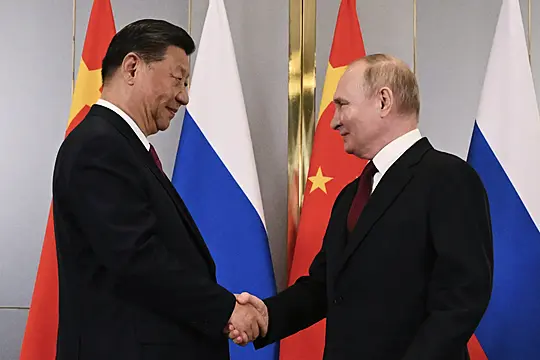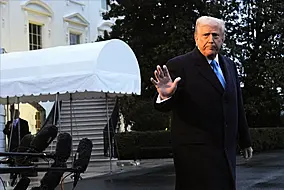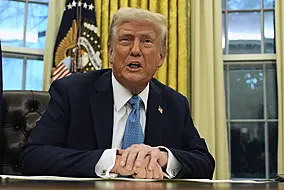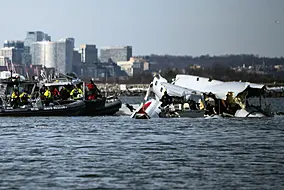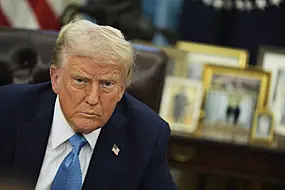Russian President Vladimir Putin and Chinese President Xi Jinping met on Wednesday for the second time in as many months as they visited Kazakhstan for a session of an international group founded to counter Western alliances.
Mr Putin and Mr Xi last got together in May when the Kremlin leader visited Beijing to underscore their close partnership that opposes the US-led democratic order and seeks to promote a more “multipolar” world.
Now they will be holding meetings amid the annual session of the Shanghai Co-operation Organisation taking place on Wednesday and Thursday in the Kazakh capital of Astana.
The Shanghai Cooperation Organisation was established in 2001 by China and Russia to discuss security concerns in Central Asia and the wider region. Other members are Iran, India, Pakistan, Kazakhstan, Kyrgyzstan, Tajikistan and Uzbekistan.
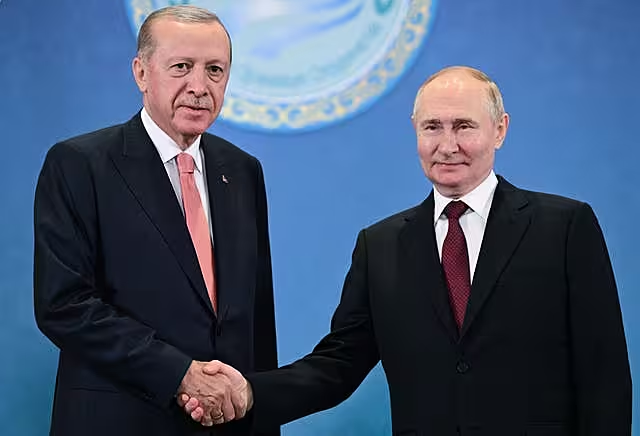
Observer states and dialogue partners include Turkey, Saudi Arabia and Egypt.
Besides Mr Putin and Mr Xi, and summit host President Kassym-Jomart Tokayev; other leaders there will be Prime Minister Shehbaz Sharif of Pakistan; President Shavkat Mirziyoyev of Uzbekistan; President Emomali Rakhmon of Tajikistan; and President Sadyr Zhaparov of Kyrgyzstan.
President Alexander Lukashenko of Belarus will attend because his nation is becoming a full member.
Also present will be UN Secretary-General Antonio Guterres, who is visiting central Asia. Mr Guterres wants “to position the UN as an inclusive organisation that’s talking to all the big clubs,” said Alexander Gabuev, director of the Carnegie Russia Eurasia Centre.

Mr Putin wants to show that Russia is not isolated over Western sanctions from the invasion of Ukraine in 2022.
An arrest warrant has been issued for him by the International Criminal Court for war crimes, accusing him of personal responsibility for abductions of children from Ukraine. Kazakhstan is not party to the Rome Statute and thus is not obliged to arrest him.
For Mr Putin, the meeting is about “prestige and the symbolic optics that he’s not alone,” Mr Gabuev said.
Indeed, the Russian leader on Wednesday had multiple meetings with other leaders on the side-lines of the summit, all diligently aired by Russian state TV.

At a meeting with Mr Xi on Wednesday, Mr Putin hailed the SCO as “one of the key pillars of a fair, multipolar world order,” and said ties between Moscow and Beijing are “experiencing the best period in their history.”
Both face soaring tensions with the West and have met about 40 times.
Their meeting in China in May underscored Beijing’s diplomatic support for Moscow and how it is a top market for its oil and gas. Russia has relied on Beijing as a main source of high-tech imports to keep its military machine running.
The SCO helps China project its influence, especially across central Asia and the Global South. Mr Xi called for “bridges of communication” between countries last week and wants to further promote China as an alternative to the US and its allies.
For host Kazakhstan and the other central Asian nations, the meeting is a way to further their co-operation with bigger, more powerful neighbours.
This year, close Moscow ally Belarus will become a full member of the organisation, and its admission indicates how Russia wants to bolster blocs of non-Western countries.
China has backed Moscow amid the fighting in Ukraine, but at a meeting of the SCO in 2022, Mr Putin referred to Beijing’s unspecified “concerns” over the conflict.
India’s Prime Minister Narendra Modi then called for an end to the fighting without voicing explicit disapproval of Moscow’s action.
Neither Ukraine nor any of its Western backers are attending, and major talks – or breakthroughs – on the war are not expected.
But because it is rare these days for any meeting to include the heads of Russia, China, Turkey and the UN, the possibility of talks about the war might be raised, at least on the peripheries of the summit, probably behind closed doors.
There could be “a lot of side-line discussions on Ukraine, as it is a big issue which concerns all of us,” a senior Kazakh official told the Associated Press.
